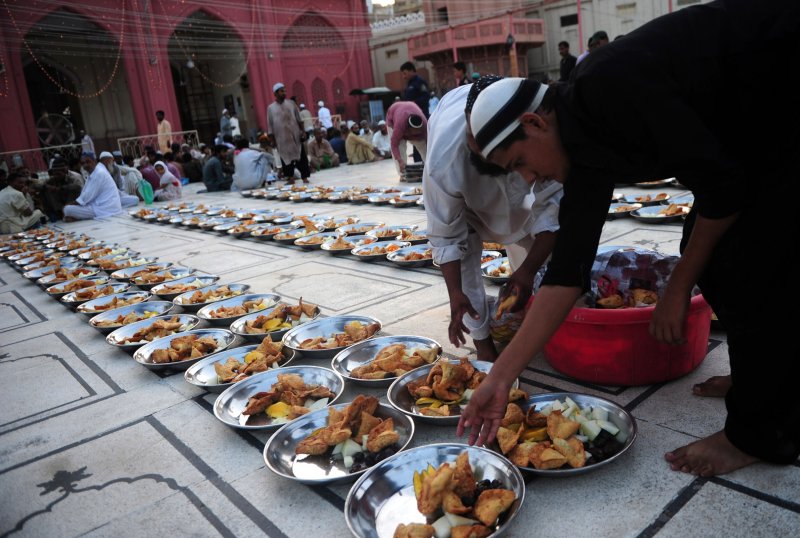The holy month of Ramadan is a time of deep reflection for Muslims worldwide. Over the 30 days of Ramadan, Imam Sohaib Sultan of Princeton University will offer contemplative pieces on contemporary issues drawing from the wisdoms of the Qur’an – the sacred scripture that Muslims revere as the words of God and God’s final revelation to humanity. The Qur’an is at the heart of Muslim faith, ethics, and civilization. These short pieces are meant to inspire thought and conversation.
Recently, a friend offered a social commentary that really stuck with me. He said, “You know there’s something wrong when too many people in the world are dying because of starvation and, at the same time, too many people are dying because of overeating.”
It reminded me of a simple yet quite profound advice in the Qur’an: “O Children of Adam…eat and drink, but not excessively: verily, God does not like the excessive” (7:31). Reflecting on this teaching, the Prophet Muhammad advised: “No human being overfills a vessel worse than the stomach. Sufficient for any child of Adam are some morsels of food to keep their back straight. But, if they must [eat more than this], then let one third be for food, one third for drink and one third for easy breathing.”
Moderation is an oft-repeated virtue in the Qur’anic discourse on living an ethical life. When it comes to our eating habits, it goes beyond our individual ethics to a more communal ethics. When extreme food waste and extreme lack of food coexist as a reality not only in the world but even, often, in the same cities, then we’ve really got to re-think how we eat and how much we eat. For example, the USDA estimates in a 2014 report that around 40% of food in America goes to waste. And, it is also estimated that 50 million Americans (1 in 6, and more than 1 in 5 children) go to sleep hungry everyday.
Of course, the problems as well as the solutions are much more systemic. But the shift in how much we eat and how we treat food needs a cultural revolution. It requires an honest conversation about the epidemic of obesity, on the one hand, and a critique of the “ideal” body type – which is just as much part of the problem – on the other hand. And, it begins with all of us, individually and in our homes, considering how we can reduce food waste and reduce the imbalance between those who have and those who do not have.
Fasting really makes you re-think the role of food in your life. It is a proof for how little we actually need to stay strong and healthy and how our appetites are so much more adjustable than we think. Breaking fast together in community also makes you think. When food is shared, it seems so much more plentiful as a little bit goes a long way when you eat in good company. As the Prophet Muhammad would say, “food for one is enough for food for two, and food for two is enough for food for three” and so on.
Just some food for thought during this month of Ramadan. - time.com


No comments:
Post a Comment